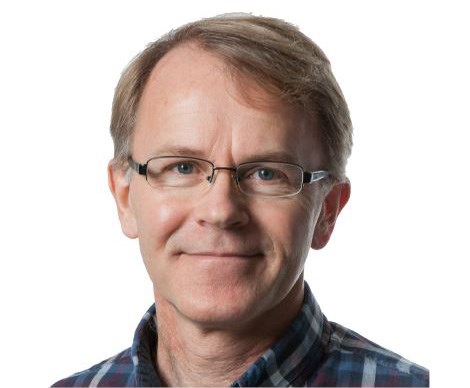Contact
njfak@slu.se, +46 18 67 10 00

NJ Faculty and SLU in the debate
Just like many others, I have begun my gradual return to the Ultuna campus. This feels good, very good, even though the way this will pan out still depends on the pandemic. Face-to-face interactions with colleagues provide the energy and inspiration we need to take on important issues, at the faculty and in society in general, where we and SLU can make important contributions.
The biggest question is the climate. How can we contribute to the debate? Yesterday evening (24/10), I watched SVT’s special Agenda episode on climate challenges. The political parties’ spokespeople for climate issues were all members of the panel. However, for once they were not there to debate with each other. Instead, they were made to justify their climate policies. And this is where things get interesting – the panel consisted of a number of researchers from various Swedish universities.
Elin Röös from the Department of Energy and Technology represented SLU, and contributed with her extensive knowledge of how foods impact the environment. The researchers were there to explain the context and, most of all, convey which measures are actually necessary in different areas (food, transport, energy provision etc.) to be able to reduce carbon emissions. The politicians were then simply left to explain what their parties want to do. The researchers then got to grade the politicians’ proposals based on their suitability for the climate.
Red (fail) or yellow (on the right track) were the results of the researchers’ assessments. Nobody raised their green card – i.e., believed that the politicians’ proposals go far enough. “Still all talk...” as one researcher put it. My point is, this is where we need to be. As a faculty and a university, we should generate the best knowledge on the most important issues affecting society. We should be prepared and proactive and deliver facts and assessments to our society’s decision makers.
I hope that the media continue to inject factual knowledge into the forthcoming election debates. Yesterday’s programme was just the start. A plethora of questions needing answers and solutions to propose remain. After having been part of the management for the Faculty of Natural Resources and Agricultural Sciences, I know we have a cornucopia of knowledge and skills that make us a strong source of expertise in this societal debate. We are especially relevant.
Which brings me to the end of this letter. In the new year I will be taking over as deputy vice-chancellor of SLU, which is incredibly exciting. I have learnt a lot during my time as deputy dean of NJ Faculty, and will take a wealth of experiences with me. I have met and worked with so many wonderful and clever people, and I am humbled to have been entrusted with the role of deputy dean. Even though I will be leaving the faculty, I am looking forward to our continued collaboration.
I would like to conclude by expressing my warmest thanks to all of you for all of your hard work. A special thanks to Torleif in particular – who has led the faculty in a most outstanding way, and who has been a wonderful colleague and boss.
Best regards,
/Pär Forslund, deputy dean
njfak@slu.se, +46 18 67 10 00